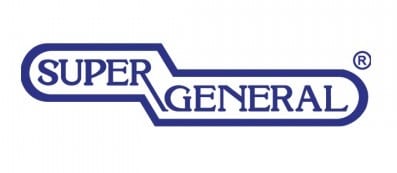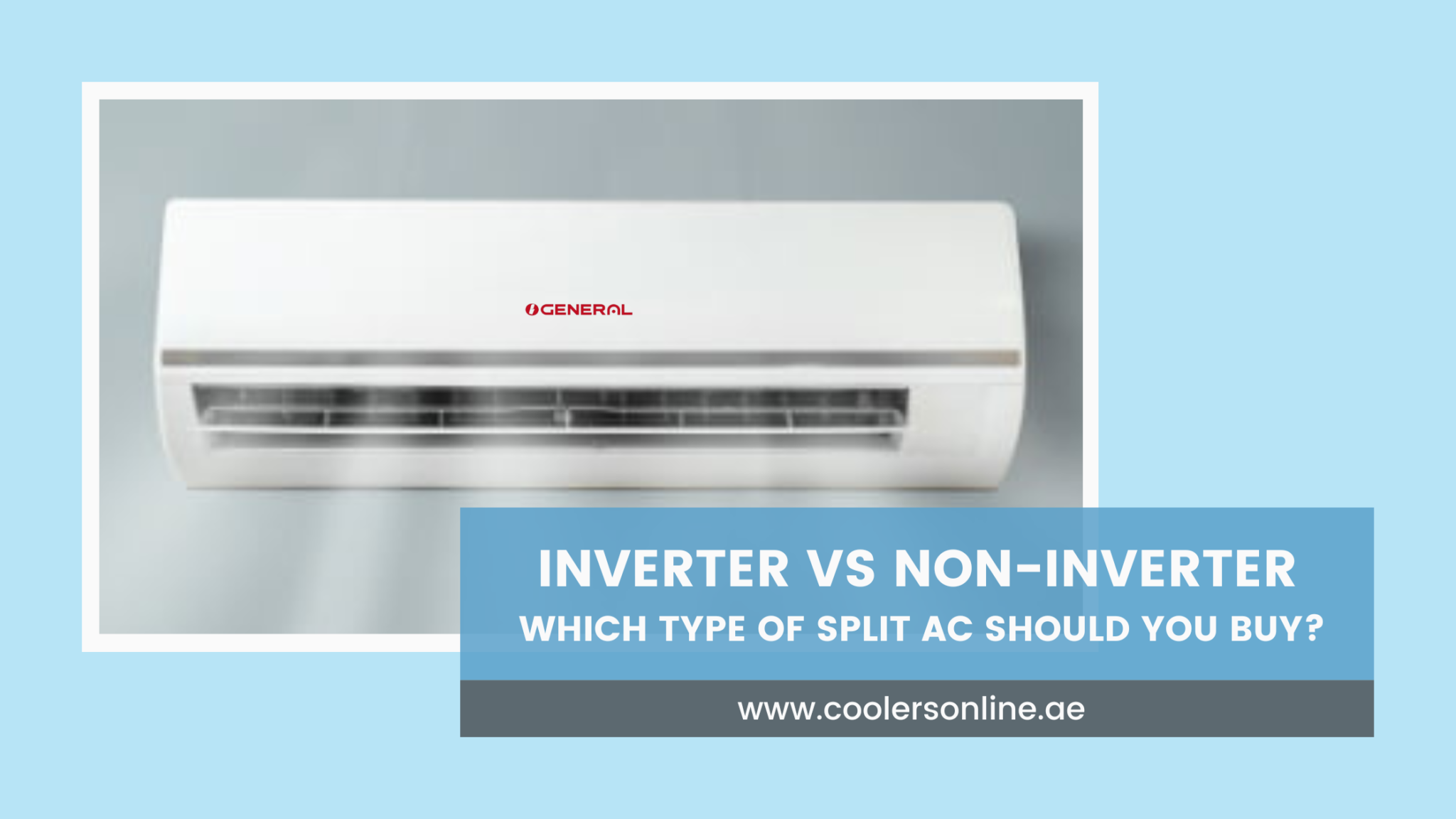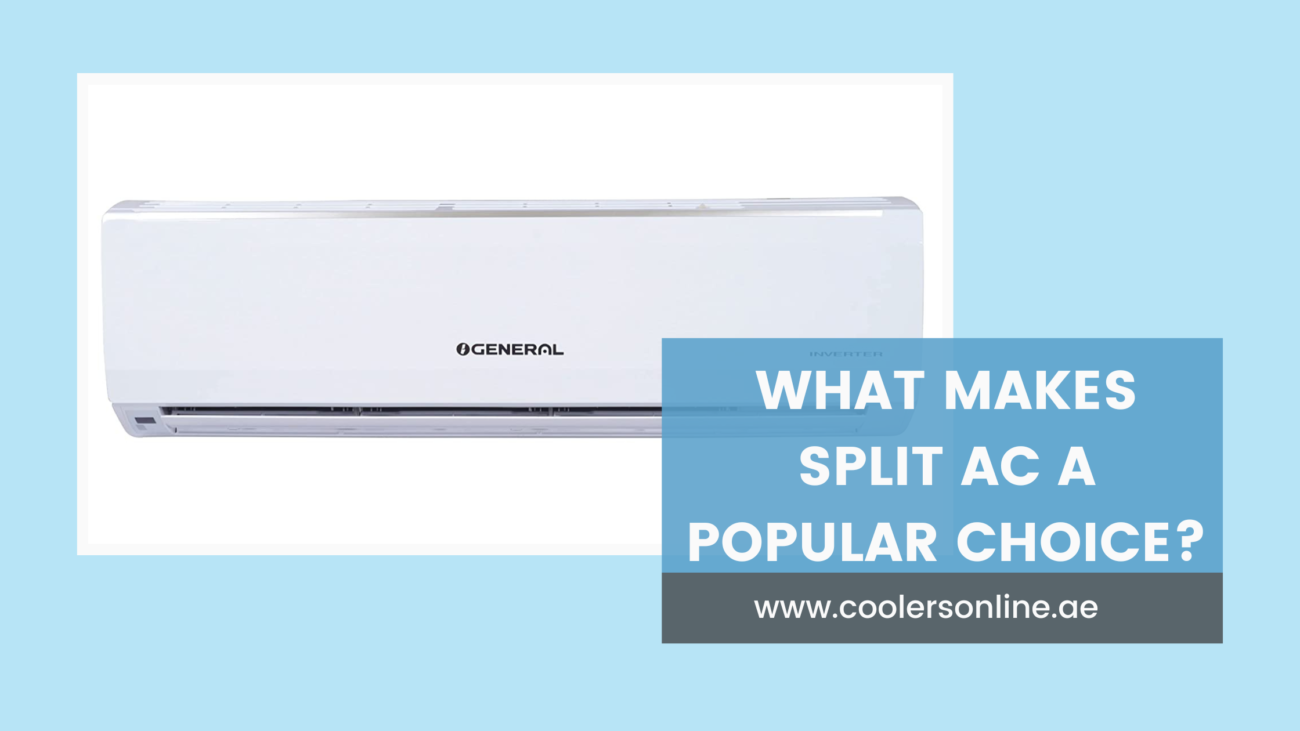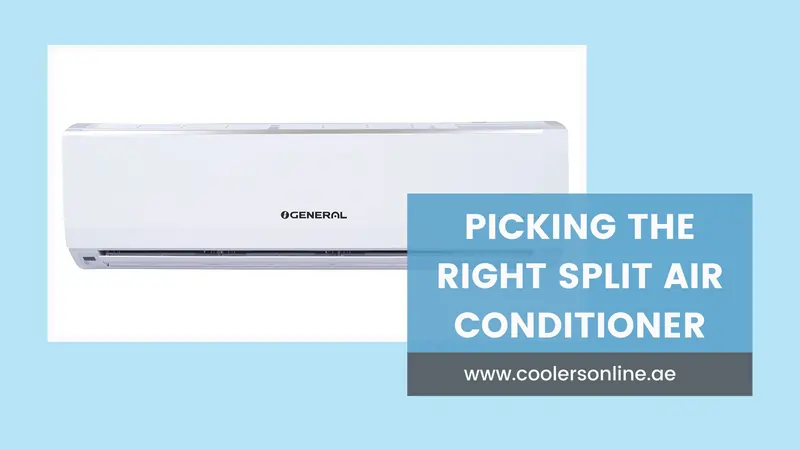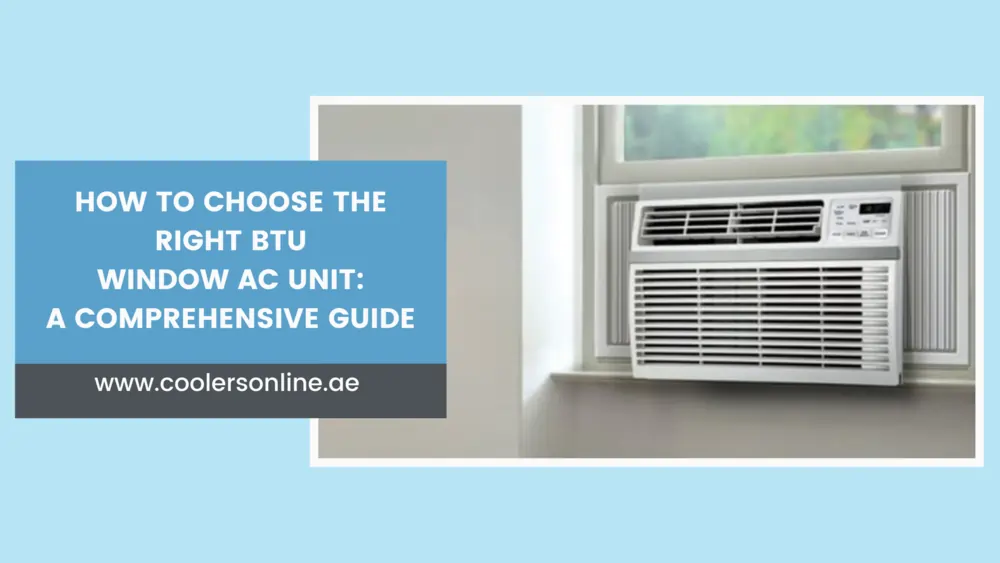As an air conditioner trader in the United Arab Emirates (UAE), we at Coolersonline understand the importance of choosing the right cooling system for your home or office. With the scorching heat in this region, air conditioners have become a necessity rather than a luxury. When it comes to buying a split air conditioner, one of the most crucial decisions you’ll face is whether to opt for an inverter or non-inverter model. In this comprehensive guide, we’ll explore the main differences between inverter and non-inverter split air conditioners, their energy-saving capabilities, and the pros and cons of each type. By the end of this article, you’ll have a clear understanding of which type of AC suits your needs best.
The Main Difference Between an Inverter and Non-Inverter Split Air Conditioners Lies in the Compressor
To grasp the fundamental distinction between inverter and non-inverter split air conditioners, let’s delve into the heart of the cooling system: the compressor.
Inverter Split Air Conditioners:
Inverter ACs are equipped with variable-speed compressors. These compressors can adjust their speed and cooling capacity according to the desired room temperature. In simple terms, they can work at different levels, from low to high, to maintain a consistent indoor climate.
The benefits of this technology include:
- Energy Efficiency: Inverter ACs optimize power consumption by running at lower speeds when the desired temperature is nearly reached and increasing their speed when cooling is required.
- Quiet Operation: Because the compressor doesn’t constantly start and stop, inverter ACs operate more quietly than their non-inverter counterparts.
- Precise Temperature Control: Inverter ACs can maintain a set temperature with minimal fluctuations, providing enhanced comfort.
Non-Inverter Split Air Conditioners:
Non-inverter ACs, on the other hand, have fixed-speed compressors. These compressors run at a constant speed, either at full capacity or switched off. When the room temperature rises above the desired level, the compressor kicks in at full power until the temperature reaches the set point, at which point it turns off.
Here are some key characteristics of non-inverter ACs:
- Energy Consumption: Non-inverter ACs consume more energy because they operate at full power whenever they are turned on, resulting in higher electricity bills.
- On-Off Cycling: The compressor’s constant on-off cycling can create temperature fluctuations in the room, making it less comfortable.
- Noise Level: Non-inverter ACs are often noisier due to the abrupt starting and stopping of the compressor.
Inverter ACs Save Up to 30% of Electricity Compared to Non-Inverters
One of the primary reasons consumers consider when choosing between inverter and non-inverter ACs is energy efficiency. In the UAE, where electricity bills can soar during the hot summer months, saving on energy consumption is a significant concern.
Inverter Split ACs’ Energy Efficiency:
Inverter ACs are renowned for their exceptional energy efficiency. Their ability to adjust the compressor’s speed allows them to consume less power when maintaining the desired temperature. This results in energy savings of up to 30% compared to non-inverter ACs. Over time, this reduction in energy consumption can make a significant difference in your utility bills.
Non-Inverter Split ACs’ Energy Consumption:
Non-inverter ACs, due to their fixed-speed compressors, have higher energy consumption. They operate at full power every time they turn on, which can lead to substantial electricity bills, especially if you use your AC frequently.
Pros and Cons of an Inverter Split Air Conditioner
Let’s take a closer look at the advantages and disadvantages of opting for an inverter air conditioner in the UAE.
Pros of Inverter Air Conditioners:
- Energy Efficiency: Inverter ACs save you money on electricity bills by consuming less power.
- Quiet Operation: They operate more quietly, ensuring a peaceful environment in your home or office.
- Precise Temperature Control: Inverter ACs maintain a consistent temperature, enhancing comfort.
- Extended Lifespan: Due to the reduced strain on the compressor, inverter ACs often have a longer lifespan.
Cons of Inverter Air Conditioners:
- Higher Initial Cost: Inverter ACs are generally more expensive to purchase upfront than non-inverter models.
- Complex Technology: Their advanced technology may require specialized maintenance and repair services.
Pros and Cons of a Non-Inverter Split Air Conditioner
Now, let’s examine the advantages and disadvantages of choosing a non-inverter air conditioner for your cooling needs in the UAE.
Pros of Non-Inverter Air Conditioners:
- Lower Initial Cost: Non-inverter ACs are usually more affordable to purchase initially.
- Simpler Maintenance: Their technology is less complex, making maintenance and repair easier and potentially more cost-effective.
Cons of Non-Inverter Air Conditioners:
- Higher Energy Consumption: Non-inverter ACs consume more electricity, leading to higher energy bills.
- Temperature Fluctuations: The on-off cycling of the compressor can result in temperature fluctuations in the room, reducing comfort.
- Louder Operation: Non-inverter ACs tend to be noisier due to the abrupt start and stop of the compressor.
Which Type of Split AC Should You Buy?
Choosing between an inverter and non-inverter split air conditioner ultimately depends on your priorities and budget. Here are some factors to consider when making your decision:
- Energy Savings: If you are looking to reduce your electricity bills and have a more energy-efficient cooling system, an inverter AC is the better choice.
- Initial Investment: If your budget is a primary concern and you are willing to compromise on long-term energy savings, a non-inverter AC may be suitable.
- Comfort: If you prioritize a consistent and comfortable indoor temperature with minimal fluctuations, opt for an inverter AC.
- Noise Level: If a quiet operation is essential to you, inverter ACs are generally quieter due to their continuous operation.
- Lifespan: Inverter ACs often have a longer lifespan, which can provide better long-term value for your investment.
- Maintenance and Repairs: Non-inverter ACs may be more straightforward to maintain and repair, which could be an advantage in the long run.
- Climate: Consider the climate of the UAE, where summers are scorching. An inverter AC’s energy efficiency can be particularly beneficial during extended periods of high temperatures.
Some of the Best Inverter and Non-Inverter Split ACs:
- Super General Split Air Conditioner 2 Ton(SGS259NE): Super General’s 2 Ton non-inverter ACs (SGS259NE) are known for their affordability and reliable performance. This model offers efficient cooling and a 3-star energy rating.
- O General Premium Inverter Split AC 1.5 Ton (ASGH18CXTA-U): O General’s 1.5 Ton Inverter ACs are known for their powerful cooling and energy efficiency. This model offers reliable performance and a 3-star energy rating.
- O General Premium Split AC 2.5 Ton (ASGA30FUTA-U): For larger spaces, consider this 2.5-ton non-inverter AC with a 5-star energy rating. It’s designed to cool effectively while saving on energy costs.
- Carrier wall Split AC 3 Ton (42KHET36N-708F): Carrier’s non-inverter Split AC 3 Ton combines efficiency and performance. This model offers efficient cooling and a 3-star energy rating.
- Midea Xtreme Split Wall AC 1 ton Inverter AC (MST4AG-12HRN1): Midea’s 1 ton Split inverter AC are budget-friendly and provide reliable cooling. This model comes with a 3-star energy rating.
Conclusion
As an air conditioner trader in the UAE, we understand the unique climate challenges you face. Both inverter and non-inverter split air conditioners have their advantages and disadvantages, but the decision ultimately hinges on your specific requirements and budget. If you prioritize energy efficiency, quiet operation, and long-term savings, investing in an inverter AC is a wise choice. However, if you are on a tight budget and can tolerate slightly higher energy bills, a non-inverter AC may be more suitable.
Before making your final decision, consult with our experts to assess your specific needs and find the perfect cooling solution for your home or office in the United Arab Emirates. Regardless of your choice, a well-maintained and properly installed air conditioner will ensure your comfort
FAQs
Inverter air conditioners are suitable for both small and large spaces. Their energy-efficient technology ensures consistent cooling regardless of room size.
Non-inverter ACs are generally easier to maintain, but they may consume more electricity over time compared to inverter models.
Yes, it is possible to switch, but it may require some modifications to your existing setup. It's advisable to consult with a professional technician.
Inverter air conditioners are more environmentally friendly due to their lower energy consumption.
Most reputable brands offer warranties on their inverter ACs, providing peace of mind to customers regarding potential repairs.


